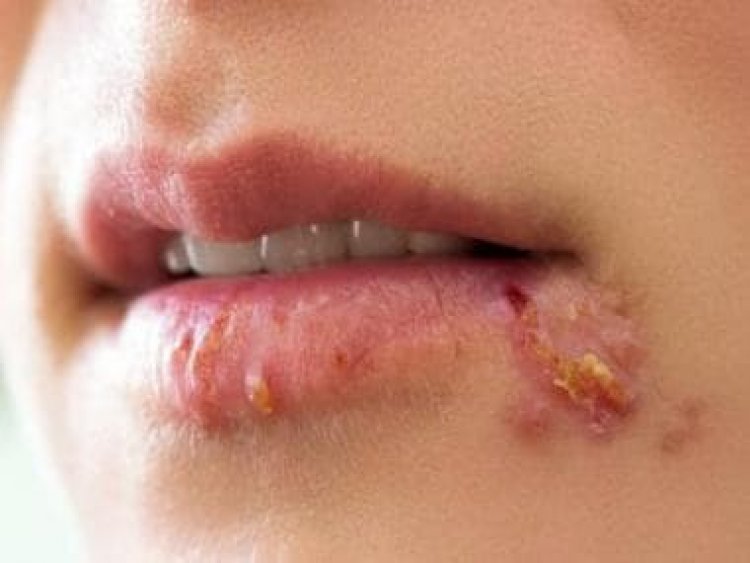Herpes Infections: Types, causes, risks and treatment
Herpes Infections: Types, causes, risks and treatment

There are about 100 types of herpes viruses known to humankind but out of these only 8 affect humans. Out of these two are called herpes simplex viruses and the other six are called human herpes viruses. Herpes causes viral infection and directly spreads through the contact with sores or an infected person. A person can transmit herpes even when there are no symptoms or indications present.
Herpes is a common infection and stays in the body for life. In herpes patients, sores pop up at uncomfortable places such as thighs, lips, mouth, throat, around eyes, vagina, cervix, anus, scrotum etc. Since it mainly spreads through skin to skin contact one has to be very careful about treatments and self-care. The sad news is that will all the modern advancements, the medical world is still working on finding a cure for herpes. On the other hand, the good news is that there are treatment options available for herpes. Here is an overview of what you should know about different types of herpes infections
Human Herpes Virus 1 (HSV-1)
This is also called as the oral herpes and it causes cold soles around the mouth. It is caused because of direct contact with the sore, saliva or bodily secretions such as during oral sex with herpes affected person. The virus transmits through skin to skin contact, sharing eating utensils, towels, razors etc. Treatment is done with the aid of medicines such as acyclovir, valacyclovir, or famciclovir. However, you still need to be careful about sharing your things as there is always a possibility of recurrence.
Human Herpes Virus 2 (HSV-2)
This is the second kind of herpes simplex virus and it causes genital herpes. The main cause is sexual transmission and it is highly contagious. It affects more women than men and, in some cases, it can spread from the genitals to the mouth and can also cause oral herpes. it causes urinary retention, constipation, and dysuria. It can be treated using antiviral medications like valacyclovir.
Human Herpes Virus 3 (HSV-3)
The common name for this infection is chicken pox. It is also the cause behind herpes zoster or shingles. Shingles are caused because of a reactivated chicken pox virus. Chicken pox is highly contagious skin condition and it causes rashes and uncomfortable blisters on the chest, back and face. Close contact with the infected person is the most common cause o the spread. Use of antiviral medications, skin soothing calamine lotions, oatmeal bath, and bath in neem water are general modes of treatment. The infection person should avoid scratching the sores at all costs as it can leave permanent scars. Vaccines for HHV-3 is the most popular preventative vaccine for the same.
Human Herpes Virus 4 (HHV-4)
Also known as Epstein-Barr virus this type of infection causes the disease mono or kissing disease (infectious mononucleosis). This type of herpes infection transmits through saliva, coughing , sneezing, and sharing utensils with the infected person. It usually passes on it own in the course of two to four weeks and the doctor might prescribe valacyclovir and fever medication if necessary. Most people get the mom without even knowing it. the common symptoms are fever, sore throat, fatigue, enlarged spleen etc.
Human Herpes Virus 5 (HHV 5)
This is also known as cytomegalovirus (CMV) and causes mononucleosis. It is usually asymptomatic in most people who have healthy immune systems. This is a complex virus and one of the serious complications of AIDS. It is transmitted sexually, through breastfeeding, blood transfusions and organ transplants and even affect the newborns and lead to hepatitis. Other complications of the disease include vision issues, loss of hearing, infections in stomach and intestines and if not treated can cause death too. CMV causes lifelong infection and is deadly to people with weak immune system. This virus spreads through infection of bodily fluids.
Human Herpes Virus 6 (HHV -6)
This type of herpes infection causes roseola. Symptoms include high fever, ear infections, respiratory issues and skin rash in small children. This disease is also one of the main causes of febrile seizures. This infection is also common in patients who have had organ transplants in the past. It spreads through saliva and there are no medications to treat it.
Human Herpes Virus 7 (HHV-7)
This type of infection is the same as HSV-6 and also spreads through saliva. This is one of the relatively newly discovered viruses and symptoms include fever, diarrhoea, vomiting and seizures along with flu like symptoms. This is a common infection and affects children before six years of age. There is no known treatment for this type of infection.
Human Herpes Virus 8 (HHV-8)
The most recently discovered human herpes virus, the HHV- 8 is also called Kaposi’s sarcoma. It is found in people with AIDS and is very rare. They are purplish in appearance and not easy to treat. the can also cause other forms of tumours on the skin. highly active antiretroviral therapy (HAART)—a combination of antiretroviral drugs to improve immune system function is the most common type of treatment line taken by doctors worldwide. Such treatments also help in preventing potential infection outbreaks.
Herpes can be easily prevented with little care. All you have to do is avoid contact with other people’s body fluids and not share any utensils, toothbrush, drinks ,etc. if you notice any symptoms on your body, it is best to consult a doctor immediately and start the treatment as soon as possible.
The author is a consultant dermatologist, cosmetic dermatologist & dermato-surgeon, The Esthetic Clinics
Read all the Latest News, Trending News, Cricket News, Bollywood News,
India News and Entertainment News here. Follow us on Facebook, Twitter and Instagram.
What's Your Reaction?



























































